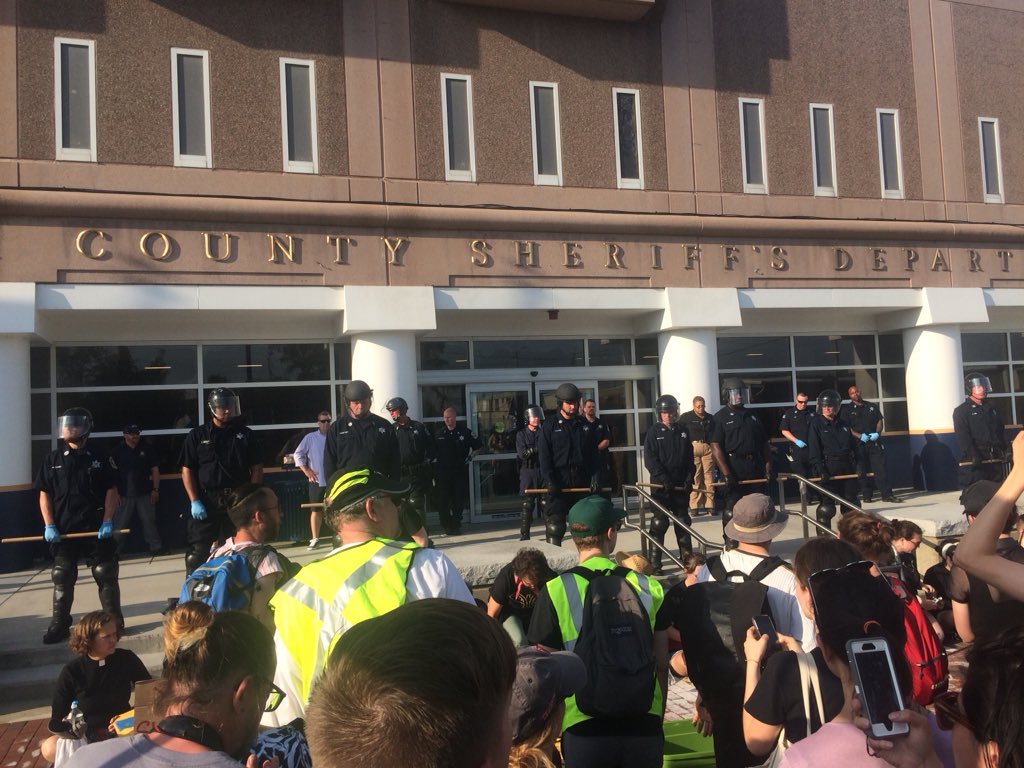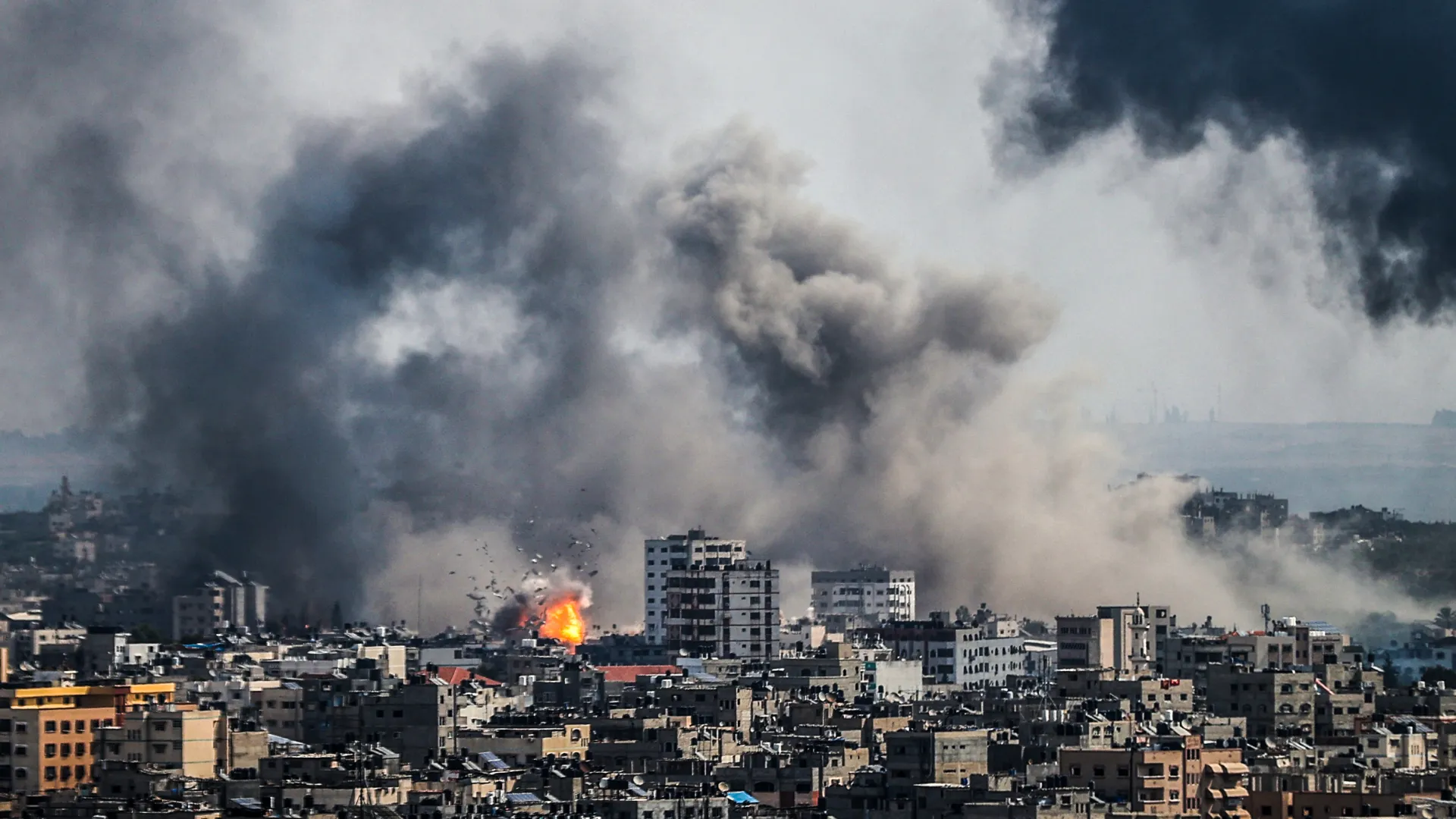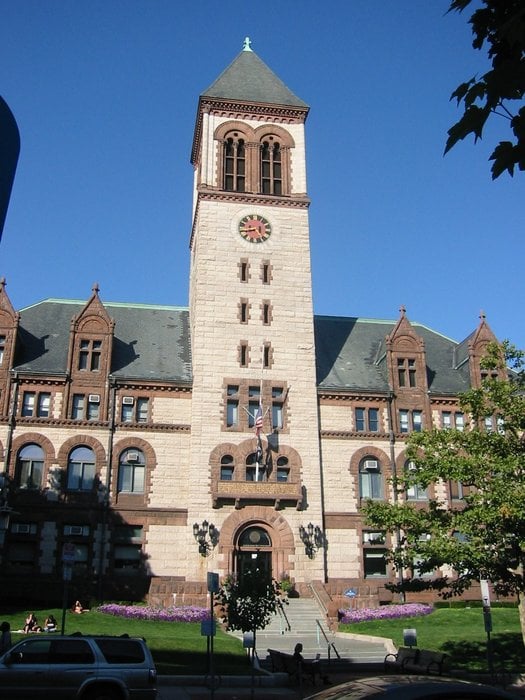By Joey Peters
On June 30th, massive demonstrations erupted across the nation in hundreds of cities. Demonstrators were protesting the inhumane actions of the Trump administration and its treatment of undocumented immigrants, kidnapping children, sending them to concentration camps and holding them hostage. Even for an evil and corrupt government, this has been a particularly depraved course of action.
In Boston there was a massive march from Government Center to the State House. Thousands of people clogged the streets downtown. A few hours later there was another demonstration, this one organized by Cosecha, a grassroots immigrant rights group. It began with a rally by the Mass Ave Orange Line Station and was followed by a march to the South Bay Detention Center. The Commonwealth of Massachusetts has a contract with ICE to house immigration detainees in a few county jails, and this was one of them. The police must have figured out our destination because by the time we reached South Bay, dozens of prison guards surrounded the main entrance to the building. They were decked out in full armor and wielded billy clubs.
Twenty of the marchers broke off and placed ourselves in front of the guards, with the hope of blockading entrance to the building. From there the rest of the marches began a rally. Undocumented immigrants told their stories, of why they left Brazil or Guatemala and why they came to America. They talked about their loved ones and the pain that our nation’s influence elsewhere has had, and the pain we inflict on them here. There was chanting. There was singing. The inmates at the facility wrote messages in toothpaste on their windows.
After a couple hours the police were fed up. They arrested us and whisked us off to jail.
Twenty of us offered ourselves up for the civil disobedience part of the rally—the prison blockade. We had very different reasons, but I think all of them basically came down to a desire to fight injustice and build a better world. We were brought into the protest through different paths. For me, the call went out among the Direct Action, De-escalation and Security committee from Boston DSA. The call was kind of vague, but by reading between the lines it seemed to be some kind of ICE blockade situation, and the risk of arrest was explicitly explained as being extremely high.
I’m a very privileged person. I’m a cisgendered, straight white male. In most situations I’m just given default respect for no other reason than the the privilege afforded to me because of these identities. Once it was pointed out to me, it became impossible not to see. Since then I met and married a Mexican woman, and now there’s this huge wing of my family that gets treated differently from how I do. When I think about everything my little nieces and nephews have to deal with, I am filled with deep moral sickness. So when the call came out from some comrades to participate in civil disobedience with Cosecha I couldn’t justify not going along with it.
When the time came to arrest us they did it fairly slowly. One by one they stood us up and zip-tied our hands, then led us to one of two vans, one for the people the police assigned as male and the other for who the police assigned as female. The van they placed the people they assigned as male had ample room to move and the air conditioning was functional. I note this because the van they placed the people assigned as female in did not have air conditioning. To me this was pretty galling because the people assigned as male were all young and able bodied. I would have been more than happy to sit in a hot van for the half hour or so it took to arrest all of us separately, especially when you realize that a significant portion of the people assigned as female in our group were of advanced age or had other physical issues.
Ultimately they took us to separate jails. The protesters they assigned as male went to the Roxbury police station. I’m not sure where the arrestees assigned as female went. The judgments of the police weren’t perfect, though (big shock).
Once at the jail the police placed most of the arrestees assigned as male in a holding cell. They took one of us for processing, but it took very long. One of the other arrestees assigned as male could kind of poke his head into the opening and see what they were doing, but he couldn’t really see much. Later on, from conversations with the arrestee who was processed first, I learned that because they don’t identify as male, but were taken with the arrestees otherwise assigned as male, the corrections officers didn’t really know what to do with them. They were groped by the corrections officers andgenerally mistreated. The process ended up taking over an hour.
In that time one of the other arrestees assigned as male started to have issues with their zip cuffs. Their arm was held in a painful position. We as a group communicated to the guards that they should process him next, just to get him out of the zip cuffs. But they continued to struggle with the first prisoner’s identity for a very long time. Meanwhile the other arrestees assigned as male muddled through and tried to keep our spirits high. And when they finally came to get the next prisoner it was me. In retrospect they seemed to have processed us in order based on our ages, and I being the oldest got picked first.
The process of getting processed wasn’t too bad for me. Given that I’m a privileged white male, I didn’t really have any issues. I just had to give the guards information about myself and try to get everything done with as soon as possible. Eventually I was led off to the smaller holding cells. There was a toilet, a little water fountain, an intercom style phone and a concrete bench. There were strange stains all over the place and the floor was very sticky.
For the longest time I just laid on the bench. Mainly I was thinking about this, about communicating this experience to others, and how easily it had thus far gone for me. The elephant in that particular room is that I’m extremely privileged and didn’t have a criminal record, so my experiences with the criminal punishment system are extremely biased. So here I’ve tried to emphasize the problems other people had in the same experience, but obviously could not capture all of what they were thinking or experiencing. I also thought about Rakem Balogan, a Black Lives Matter activist in Texas who was jailed for seven months, not even for civil disobedience, just posts on Facebook. Posts that pale in comparison to the memes I post on Twitter all day every day.
Every half hour or so a new arrestee was brought into the smaller holding cells. Next after me was the person with the injured arm. All of us were processed after maybe another hour and a half.
Gradually we started yelling to each other through the cells, making jokes and trying to keep our spirits up. One of the guards told us that the bail bondsman was on his way. One of us called the jail support set up for us by Cosecha and heard that the arrestees assigned as female had been released (we later learned this was not quite correct, but some of them were already making their way out as early as 10:30pm.
The bail bondsman arrived. The National Lawyers Guild had explained the likely process of what would happen to us and told us it was a good idea to carry forty dollars in cash into the protest. Their suggestion was dead on and that’s how much we paid in fees to the bail bondsman. After that I was sent back to my cell.
The others gradually paid their fee to the bail bondsman and were placed back in our cells as well.
By this point it was starting to get late. We were getting kind of loopy. The water from the fountain was probably not the best and the bench was sure as hell not comfortable.
Finally the guard came and got me. She gave me some things to sign and told me to appear at Roxbury District Courthouse at 9:00am Monday. This jibed with what the guy from the National Lawyers Guild had told us.
And then they released me, sent me out the back door and told me my fan club was waiting around front. So I hobbled around the corner was was met with a huge swarm of people from jail support. It was almost overwhelming and their happiness and relief kind of made me feel ashamed. Like, I don’t deserve any special recognition. I did a thing that I considered to be the bare minimum that someone in my position could do. I would have felt very bad if I had an opportunity to lend my time and privilege to a worthy cause and I had not done it.
But they had pizza and candy and my cell phone. It was around 1:30 in the morning.
I led the prison support folks to the back door they let me out from and one by one the other arrestees followed me out. Once everyone was out various people from jail support drove us back to our houses.
As I understand it, the arrestees assigned as female didn’t have it quite so nice. First of all, the other facility was aggressively cold. They had brought along sweaters because they expected that, but since it was a 90+ degree day they weren’t wearing them when they were arrested. I chalk that one up to the institutional sexism thing where buildings air conditioning systems are calibrated for men, who are comfortable at lower temperatures for some reason.
Second, there were a hell of a lot more of them, so it took longer to process them all. The fingerprint scanning machines that the BPD use aren’t calibrated for repeated use, so the corrections officers struggled to get good scans. One of the arrestees assigned as female was of advanced age and one of her fingers wouldn’t scan on the machine, come hell or high water. Eventually they had to give up and take a high resolution photo of the finger.
The next most important thing was that several of the arrestees assigned as female had extenuating circumstances, such as chronic diseases, advanced age (as noted above), they were nursing mothers and other such things. In particular the nursing mother began to get very dehydrated. The other arrestees there advocated for her and repeatedly asked for water on her behalf. The corrections officers explained that they didn’t have any cups. The jailsupport people outside were waiting with bottles of water and paper cups, but the corrections officers refused to accommodate the arrestees. One of the corrections officers even bought a drink from a vending machine and drank it themselves. Eventually they were talked into taking a small care package from the jail support people waiting outside to the prisoners, but of the items jail support said they gave to the corrections officers, only a few made their way to the arrestees.
And when the arrestees assigned as female were moved to individual detention cells their water fountains didn’t actually work, to add insult to Injury.
The final indignity that they suffered was that they were released in a slow, staggered manner. It probably took a half hour to release all the other arrestees identified as male after me. The first arrestee identified as female was released around 10:30pm, but the process dragged out much longer with the final arrestee being released around 3:30am.
But eventually we did all make it out that night.
Our arraignment hearing was scheduled for Monday and we needed to be at the Roxbuxy District Courthouse at 9:00am. Our attorneys from the National Lawyers Guild were present and kept us aware of the goings on.We filled out our probation paperwork to check in, but in an interesting twist our case hadn’t been put on the schedule yet. Around this time, a few DSA members working with the Court Watch program arrived and we all went up to our court room together. After watching a couple minor disputes one of our attorneys took us aside for a conference. None of the paperwork for our case had been sent up from the police districts. We twiddled our thumbs for a little bit. Around 11:00 am our attorneys told us that the Boston police had written up our reports wrong, so they had to rewrite them and that would take around an hour. Hopefully they would be fixed and sent back over before the court’s lunch recess.
There were a few decisions to be made, specifically about how to conduct our case. We could bite and fight and scratch, a process that would drag out for a year at a minimum, or we could accept some kind of plea from the district attorney, likely something to convert our charges into a ticketable offense. Our lawyers went over a few scenarios they had seen play out.
There was still a good amount of time that would likely pass before the paperwork was processed, so we went off to have our lunch. By the time we returned our proper paperwork was being faxed over, one person at a time. They Boston Police dragged out the process as long as possible, and the court ended up recessing for lunch in the meanwhile. After a couple sets of paperwork were sent over we could surmise that charges we might be facing—trespassing and disorderly conduct, which jibed with our intake paperwork from our arrests.
As a group we ended up congregated in the hall. As the lunch recess neared its end one of our attorneys arrived for a conference. The district attorney’s office had offered to divert our cases. Not being an attorney myself I can’t fully explain the details. Basically, there’s an option in Massachusetts courts to divert minor cases into different educational programs to prevent further legal violations.
The one caveat with this situation is that a diversion program doesn’t really exist for civil disobedience, and my suspicion is that the purpose behind this was specifically to avoid making it into a huge knock down drag out legal battle that will make a liberal state look bad for prosecuting grandmas for the devious crime of protesting children being sent to concentration camps.
Long story short, our attorneys talked the D.A. down from putting us into this fictional program for three months and instead for one. We decided to roll with that and we made our way back into the court.
After the lunch recess the court heard a couple arraignments and bail cases before we were finally called up. Our attorneys laid out in plain terms what we were protesting and why.
We were disgusted with the Trump administration’s treatment of immigrants and we could no longer sit back and do nothing. We were making a moral choice to stand up to injustice and we put ourselves in potential harm’s way to do this. The judge accepted it, and we were free.
Now, we still have the specter of a trespassing charge and disorderly conduct hanging over our heads, but for the most part we’ve been prevented from facing harsher consequences.
All told I lost about twelve hours of my life and about forty dollars in bail fees. This isn’t a terrible price to pay for what I feel is the fight for justice. In retrospect I wish the protest had been better publicized, that there was a bigger media eye on grandmas being dragged away in chains. I wish we accomplished more.
But we did do something and I feel that’s a salve against the injustices of the world. The last few weeks have been particularly hard for me. Normally I’m extremely dispassionate and detached, but even I was shaken by the pictures and audio of children in pain, not just because of Trump himself, but by the bestial, monstrous fascist system that created him and brought him to power. Even pissing in the wind against that hurricane of hate feels powerful.
There will be more opportunities to fight for justice in the future. Cosecha and other organizers are building toward a protest at the end of this month. I’m not sure what form it will take, but I’ll be there in some capacity.
I’ve got to fight for justice because I won’t face the same opposition that Rakem Balogan has for merely posting “fuck the police” memes on Facebook. I won’t be thrown into solitary confinement for months on end, because of the privilege I have.
If you’re a comfortable, privileged person, if the injustices of the world make you sick and you feel like there’s no hope, then pay attention. Pay attention to DSA and Cosecha and find other organizations you can help. I feel that it’s important for those least likely to face the hell fury of the carceral state to stand up and use our privilege, to directly interact with the injustices of our society. Put ourselves in danger.
Things are not getting better yet. Soon there will be more opportunities for civil disobedience. We may be soon fighting for abortion doctors or union activists. There is going to be more danger in the short term and one way you can prepare is with this sort of civil disobedience action.
* * *
Joey Peters is a writer, cartoonist, beauty contest champion. You can follow his work at socialismisgood.com




Leave a Reply